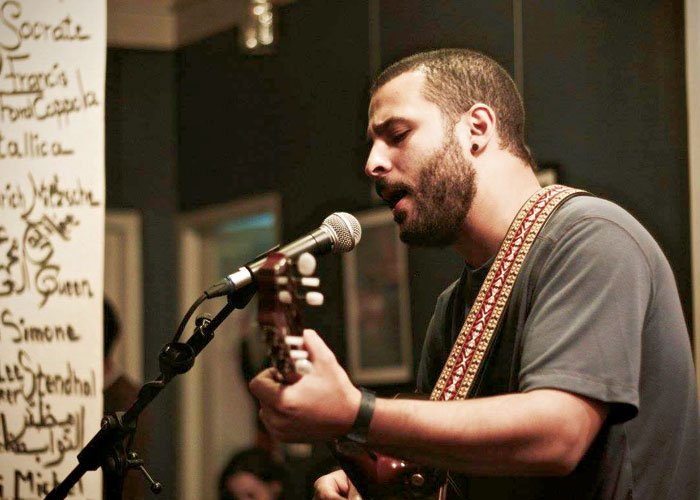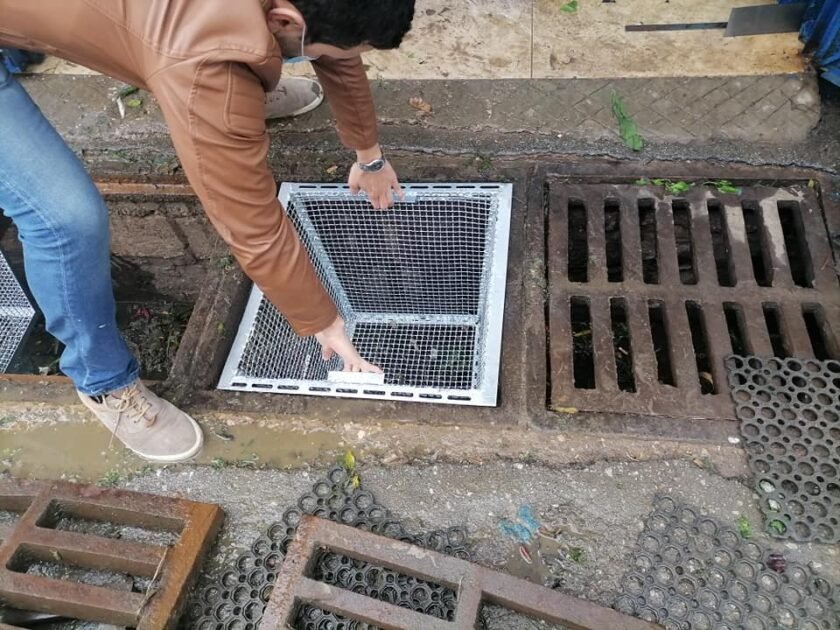While this year’s festival attracted about 1,500 visitors, it won the respect of prominent Tunisian artists.
An art festival for aspiring Tunisian artists shed new light on the country’s alternative art scene.
Tunis Scene Libre, which took place for the first time in October, was touted as one of the first festivals devoted exclusively to young artists.
“The festival is an initiative to promote the alternative cultural scene,” said Ghassen Labidi, one of the festival’s founders. “This has been a lifelong dream that started years ago as we contributed to the beginning of many other cultural events. The idea was to encourage and help young people feel free to express themselves by giving them freedom on the stage.”
He said that slam poetry, music and poetry readings were core elements of the festival, which included debates and photography exhibitions.
For participants and organisers, Tunis Scene Libre was an invaluable opportunity to showcase their work, as most events give voice only to established professionals.
“The festival promotes and encourages young talent,” Labidi said. “Usually, festivals in Tunisia require professional experience and would invite only performers with long careers. This festival goes the other way around as we have young people who have amazing talents, whether they are musical or literary. They didn’t gain attention for lack of access to these platforms.”
The festival is unique in that it highlighted art with social themes and promoted artistic freedom.
“We want to showcase the art that does not target only entertainment but seeks to create a public conscience among young people,” Labidi said. “The point of such events is to shed light on the existence of this community.”
Anis Chouchen, who performs slam poetry, said it was events like these that got him started.
“It was through the support of people and artists that I managed to gain recognition and now my texts are translated into other languages and my experience shared with others,” he said.
“There is too much talent here and so many young people who don’t have such space to express themselves freely. This is their opportunity to do so, to share and learn from each other’s experiences.”
Labidi emphasised that the festival strived to display creative, authentic content.
“The festival is an open platform to all as long as their artwork promotes ideas of creation, reflection, optimism and freedom of expression,” Labidi said.
“There is no festival that truly promotes musical creativity and originality. We have many talented young performers but they are denied the chance to perform before a big audience. This festival will be the right platform for that.”
While this year’s festival attracted about 1,500 visitors, it won the respect of prominent Tunisian artists, who expressed optimism about its role in the country’s art scene.
“The short films were original and quite unique in this prospect and for the winners, the narrative and technical qualities were evident and definitely won our appraisal,” said Nidhal Guiga, Tunisian film-maker and writer.
“We definitely enjoyed watching these good movies that tackled these really interesting issues and we hope to see more of these,” added Tunisian documentary film-maker Amine Boukhris.
Essma Ben Yaccoub, who won second prize in literature, said the festival was an important learning opportunity.
“My participation came with many advantages as I learnt from the other participants and from the feedback of the jury. I learnt about the strengths of my texts and learnt from the criticism as I am going to improve the weaknesses,” Ben Yaccoub said.
“It helps to know that there are writers and poets who are going to support them all along the competition so that they can express themselves freely,” she added.
Labidi said he hopes to see similar initiatives that inspire the country’s youth and spread a positive image in the future.
“This festival sprung out of nothing but we seek to implement a better image of Tunisia, a positive image,” he said.” This is to show there is Tunisian youth that wants to work on imitating festivals and creating art.”





Comments are closed.